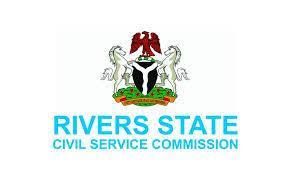The Nigerian Maritime Administration and Safety Agency (NIMASA) is Nigeria’s apex maritime regulatory body, established to oversee the country’s shipping, maritime safety, and marine environment protection. As a vital agency under the Federal Ministry of Marine and Blue Economy, NIMASA is central to ensuring the safety, security, and commercial viability of Nigeria’s waters.
Created through the merger of the National Maritime Authority (NMA) and the Joint Maritime Labour Industrial Council (JOMALIC), NIMASA continues to play a leading role in shipping regulation, maritime labor administration, anti-piracy operations, and marine pollution control.
Official Duties and Responsibilities of NIMASA
1. Maritime Safety and Security Enforcement
NIMASA is responsible for enforcing safety regulations for all vessels operating in Nigeria’s waters. It ensures that ships meet international safety standards under frameworks such as the International Maritime Organization (IMO) and the International Ship and Port Facility Security Code (ISPS).
2. Promotion of Indigenous Shipping and Cabotage
Through the Nigerian Cabotage Act, NIMASA promotes indigenous participation in coastal and inland shipping. The agency administers policies that give preference to Nigerian-owned vessels and operators in local maritime trade.
3. Marine Environment Protection
NIMASA plays a leading role in the protection of the marine ecosystem. It monitors oil spills, marine pollution, and the dumping of hazardous waste, while enforcing laws in line with MARPOL (Marine Pollution Convention).
4. Registration and Survey of Ships
The agency maintains the Nigerian Ship Registry and ensures that vessels are properly surveyed, registered, and certified in accordance with global maritime standards. This helps prevent illegal shipping operations and boosts trade credibility.
5. Anti-Piracy and Maritime Crime Response
NIMASA partners with the Nigerian Navy and other agencies to combat piracy and maritime crimes, especially in the Gulf of Guinea. It supports operations such as the Deep Blue Project, which deploys air, land, and sea assets for maritime domain awareness.
6. Training and Certification of Maritime Personnel
Through institutions like the Maritime Academy of Nigeria, NIMASA oversees the training, examination, and certification of seafarers, marine engineers, and maritime safety professionals.
7. Maritime Labour Regulation
The agency ensures decent working conditions for seafarers and maritime workers, including wage protection, employment standards, and dispute resolution in line with the Maritime Labour Convention (MLC) 2006.
8. Promotion of Maritime Trade and Investment
NIMASA develops policies to attract local and foreign investments into Nigeria’s maritime sector. It also collaborates with stakeholders to improve port operations, ship financing, and logistics infrastructure.
FAQs
Q1: What is the main function of NIMASA?
A1: NIMASA regulates and promotes maritime safety, shipping development, and environmental protection in Nigerian waters.
Q2: Is NIMASA involved in port operations?
A2: While it oversees safety in ports, the Nigerian Ports Authority (NPA) is directly in charge of port management. NIMASA’s role is more regulatory and safety-focused.
Q3: How does NIMASA fight piracy?
A3: Through surveillance, patrols, and collaboration with the Nigerian Navy under initiatives like the Deep Blue Project.
Q4: Can NIMASA license vessels?
A4: Yes. NIMASA registers and licenses vessels for operation within Nigerian waters and under Nigerian flags.
Conclusion
The Nigerian Maritime Administration and Safety Agency (NIMASA) is the engine room of Nigeria’s maritime sector. From securing waters and enforcing international regulations to training seafarers and protecting the marine environment, NIMASA plays a vital role in national development and global maritime relevance. As Nigeria expands its blue economy ambitions, NIMASA remains a key player in unlocking the potential of the country’s vast maritime domain.

















